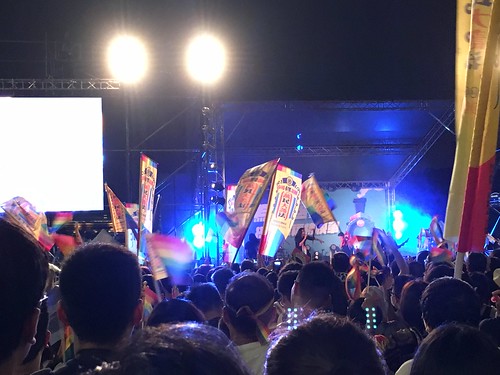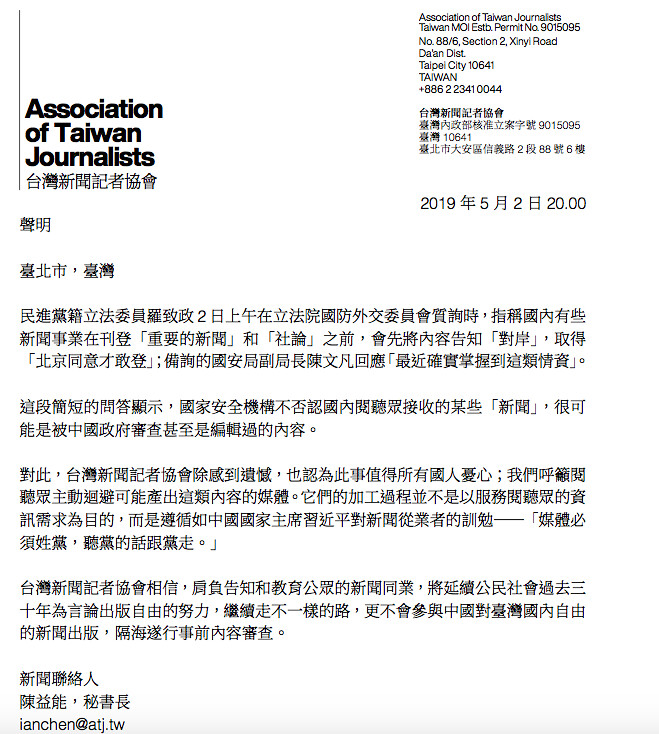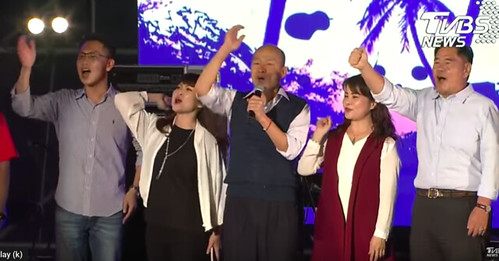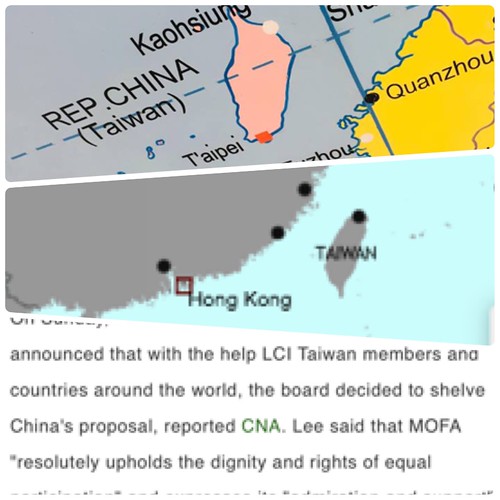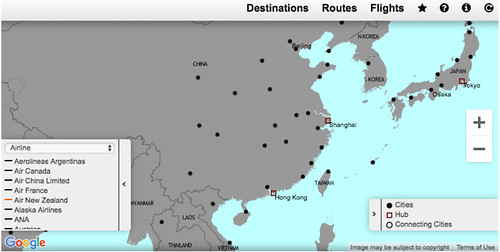
I'm not a fan of just translating stuff from the Mandarin-language media and calling it a day, but this one in Liberty Times is worth it.
Building on my last post about some media in Taiwan obtaining Beijing's approval before running news, it seems the collaboration is explicit, and includes Want Want Media (yeah, big surprise).
Is this not a smoking gun of sorts?
I'm not as fast or as good a translator as you might think I am, so I've only done some select chunks of text from this article, but it's all you should need to get the point.
The 4th Cross-Strait Media People Beijing Summit, hosted by Beijing Daily Newspaper Group and Want Want Media Group, held its opening ceremony in Beijing today. According to reports, nearly 70 media and related organizations on both sides of the strait and more than 200 representatives gathered in Beijing to discuss "cross-strait exchanges and media responsibility."
Wang Yang, chairman of the National Committee of the Chinese People's Political Consultation Conference (no idea if that translation of the name is accurate), met with Taiwanese media before the opening ceremony and asked Taiwanese media to promote "one country, two systems." He said, "In the past, cross-strait relations thawed, and friends in the media industry contributed greatly to that. Now, to achieve "peaceful reunification" through "one country, two systems", we still have to rely on the media community to collaborate with us."
It's interesting to me that China isn't even trying to hide that it's trying to co-opt Taiwanese media, but there are still plenty of people in Taiwan who would deny that this is happening, or that they or Taiwan as a whole are influenced by it, or that the news they consume like candy might be streaming a pro-China view that worms its way into their heads. They'll still insist "there's no proof!" or say "not what I watch!" even as China openly says that this is their strategy.
It's the same with economic warfare - China doesn't even try to hide that it uses economic carrots and sticks to get what it wants. Or expansionism - they don't try to hide their pure greed in expanding into the South China Sea or declaring the Taiwan Strait their territory.
They don't even lie about what they are doing. So why don't people believe the CCP when they tell us who they are?
When Chen Wenfan, deputy director of the National Security Bureau, went to the Legislative Yuan to testify, he confirmed he'd heard of some media "taking China's side" (and seeking Beijing's approval before running stories.) President Tsai Ing-wen also mentioned Chinese interference strategies, including United Front work, Chinese media interference and the media accepting Chinese funding and 'fake news' at a high-level meeting of the National Security Council today.
That's great, but this information needs to be reported in detail and made public. Which stations? What strategies? Give examples. Be clear. I don't know that it'll convince the die-hards but it probably will at least wake a few people up.
Or do we need to occupy a legislature again to get people to listen?
Wang Yang said in the meeting, "the way things currently work in Taiwan (could also be translated as 'the current Taiwanese mindset' perhaps?) makes the media advocating peaceful reunification very difficult."
He also said here that the hard work of people pushing for unification would be valued in the future when it's achieved (but translating that part was a pain in the butt, so I didn't).
Wang Yang went on to say, "I think the Taiwan authorities may not be able to guarantee (what things will be like in Taiwan) even two years later. Considering this, we can surely say that the time is now. Of course, there is also some guarantee from the US. The United States passed the "2019 Taiwan Assurance Act," so the Americans currently stand by Taiwan. (But) the Americans regard Taiwan as a pawn. Will the Americans get involved with China over Taiwan? I don't think so."
A pretty oblique reference to the 2020 election, wouldn't you say? They fully expect their campaign of media co-opting and disinformation (as well as fake civil society/astroturfing) will be successful and a unificationist will take the presidency in 2020.
"Does the United States have the courage to fight China today? I'll say that Taiwan independence is not going to work. Taiwan independence is reliant on Americans, which makes it unreliable."
He's not wrong. Not about it 'not working'. The only way there will be reliable, lasting peace in this part of the world is if Taiwan does get independence. The other choice is war - peaceful unification is never going to happen, and violent annexation might seem like it will be over quickly, but will create conflicts that will continue for generations.
He's right, however, that Taiwanese sovereignty as guaranteed by the USA alone is not a reliable plan for the future. Taiwan needs to convince the rest of the world that this country's continued existence is worth fighting for. Western liberals especially need to wake up and listen - everything they stand for is embodied by Taiwan's tenacious fight for continued democracy, freedom and sovereignty. It's not jingoistic nationalism, it's fighting for ideals that liberal democracie share, for the human rights we know are universal, and to maintain the sovereignty it already has. They need to understand this, and Taiwan needs to figure out how to talk to them.
And, of course, Taiwan needs to figure itself out. I strongly believe, and I think data indicate, that the populace generally favor independence and liberal democracy. That they'd rather be 'Taiwan' than 'a part of China'. That they can't be convinced that unification is a good idea.
But they sure don't show that in their voting habits sometimes, and this is influenced by media interference and disinformation campaigns. Taiwan must push back against this - it's real, literal, actual future depends on it.
And how can Taiwan ask the rest of the world for support when it can't even agree on how to project a coherent vision for its own future?
We need US support for sure, we can't afford to throw that away even if our most vocal allies are often the worst people (though not always - assurances to Taiwan keep passing unanimously!) But we need more than that too - we need to overcome the disinformation campaigns and coherently project to the world that Taiwan does not want to be a part of China.
